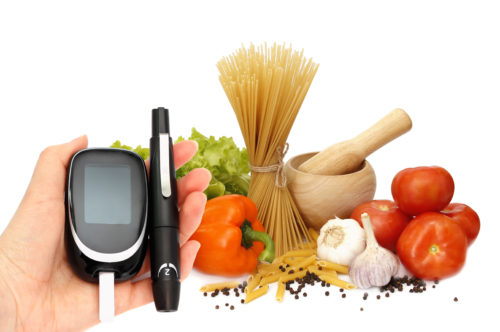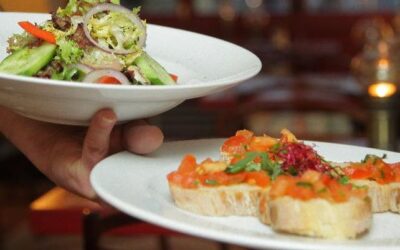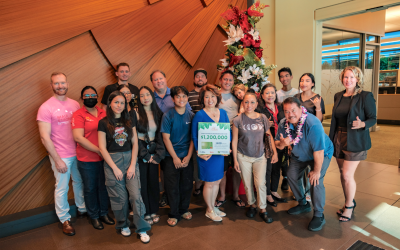 November is National Diabetes Month, which creates a great opportunity for individuals, companies, and communities to spend some time learning about what diabetes is and how to prevent and manage it. One important role that the restaurant industry plays in this awareness is to be able to offer assistance to guests who are looking for some diabetes-friendly options.
November is National Diabetes Month, which creates a great opportunity for individuals, companies, and communities to spend some time learning about what diabetes is and how to prevent and manage it. One important role that the restaurant industry plays in this awareness is to be able to offer assistance to guests who are looking for some diabetes-friendly options.
First, let’s go over what diabetes is. Diabetes is a metabolic disease that interferes with the body’s ability to produce insulin, which is made by the pancreas and is used to breakdown sugar to produce energy. When insulin isn’t produced properly it will result in high sugar levels in your bloodstream for prolonged periods of time.
There are 3 types of diabetes:
- Type-1 (commonly diagnosed from infancy to late 30s)
- Type-2 (develops later in life; preventable with proper diet and exercise)
- Gestational (develops during pregnancy and will often resolve itself)
Progression of diabetes can result in major life-threating complications including stroke, kidney disease, nerve damage, and skin and eye complications.
Eating for diabetes can be tricky and many people may feel that going out for meals is limited for them. As members of the restaurant industry, you are able to help make this process easier and more enjoyable for customers with diabetes by knowing your menu and being able to make healthy, diabetes-friendly recommendations to your guests.
What should you offer to guests with diabetes? Here are some recommendations of types of dishes that would be appropriate for a guest with diabetes:
- Broiled or baked fish or meats (avoid fried or breaded options)
- Substitutions on sides: vegetables or salad instead of fries or sides that are high in fat or starch
- Whole grain options on breads (if available)
- Options where sauces can be served on the side
- Oil and vinegar salad dressings instead of creamy options
- Offer to cook items in vegetable oil or low-fat margarine when possible or to remove excess salt from the dish
- Offer lunch-sized portions (if available)
- Provide nutrition information (if available)
- From the bar: avoid high calorie mixers (margaritas, daiquiris, soda, or juice). Suggest a tonic mixer.
Each restaurant has their own dishes and specialties so, managers and chefs should sit down with their staff to go over the menu items, and discuss which dishes would be best suited for individuals who have eating restrictions.
Join the fight against diabetes by making sure your menu has options that are suitable for diabetic guests and your staff is knowledgeable in making healthy recommendations.

Dr. John E. Aoki, M.D. CHCQM, FABQAURP
Chief Medical Officer
Brought to you by HMAA, where we’re passionate about your health. To find out more about the HMAA health plan, visit hmaa.com or contact our Customer Service Department. For information on our menu of wellness services, please contact Naomi Azama at (808) 791 -7607 or nazama@hmaa.com.





0 Comments